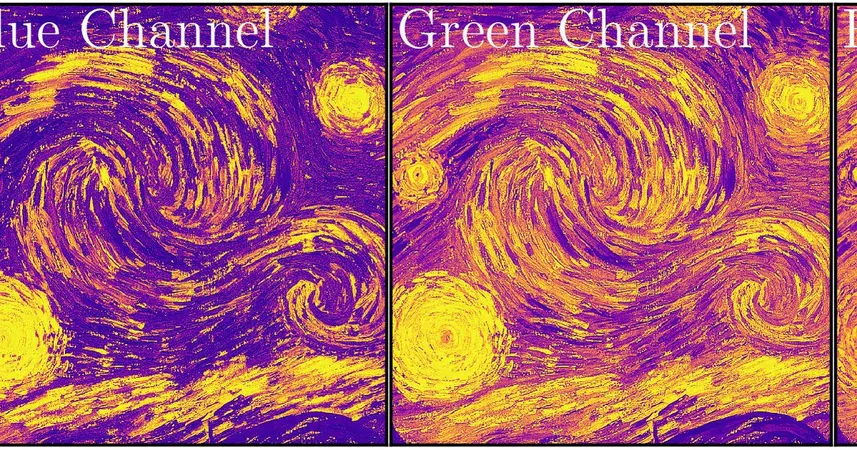
Surprising Link Between Discontinuing MS Therapy and Recurring Inflammation Revealed!
2024-12-19
Author: Wei
In a groundbreaking study conducted as part of the DOT-MS noninferiority randomized trial (NCT04260711), researchers have uncovered alarming evidence that stopping first-line disease-modifying therapies (DMTs) in patients with stable multiple sclerosis (MS) after five years can trigger a resurgence of inflammatory activity. This finding could change the way healthcare professionals approach treatment for MS patients.
Led by the esteemed Dr. Eva Strijbis from Amsterdam University Medical Center, the trial included 89 participants with relapsing-onset MS, who were either instructed to continue their DMT (44 participants) or to discontinue it (45 participants) after five years of therapy. Shockingly, 17.8% (8 out of 45) of those who discontinued treatment experienced a return of inflammatory activity—primarily observed via radiological imaging—while none in the continuing group showed any such recurrence.
Conducted between July 2020 and March 2023, the DOT-MS study was cut short due to the unexpected uptick in inflammatory diseases among participants who halted their DMTs. The study's design required subjects to have been stable for at least five years—defined by no clinical relapses or significant radiological disease activity—before any evaluation regarding the discontinuation of their medication. Notably, the presence of even a few new T2 lesions on MRI scans could be a signal of potential trouble ahead.
The data revealed that 13.3% of those in the discontinuation group developed new lesions without experiencing clinical relapses. Interestingly, the study found that younger patients showed a higher risk of inflammation recurrence compared to older groups in previous studies.
As part of this trial, researchers analyzed neurofilament light (NfL) levels—a biomarker associated with neurodegeneration—and identified no significant differences between the two groups regarding overall NfL levels. However, participants who had significant ongoing disease activity exhibited elevated levels of NfL, indicating a potential correlation. In terms of another biomarker, glial fibrillary acidic protein (GFAP), no notable differences were noted between the groups.
Despite the premature termination of the trial, those who chose to discontinue their DMTs were monitored closely in observational follow-ups for up to two years. Impressively, 77.8% of participants who discontinued remained off therapy, but many faced the daunting prospect of reintroducing medication after MRI activity was detected.
Comparative analyses with prior studies, such as the phase 4 DISCOMS trial, highlight the critical difference in age demographics, with DOT-MS participants being significantly younger. This detail raises questions about the risks associated with discontinuing treatment at different life stages. The DISCOMS study reported a 12.2% recurrence rate for older patients but found the rate nearly doubled in the younger cohort of the DOT-MS trial.
The findings from DOT-MS emphasize an essential message for patients and clinicians alike: the decision to stop DMTs is far from straightforward. Factors including age, period of disease stability, and individual patient health should always be considered before making treatment decisions.
As ongoing discussions about the management of MS continue, researchers urge close monitoring and individualized care. As Dr. Strijbis and her team concluded, "The findings highlight that while discontinuing therapy is a possibility, clinicians must remain vigilant, especially in younger patients, to prevent inflammatory recurrences and optimize long-term health outcomes."
Stay tuned for more revelations in the world of MS research as studies continue to shed light on effective therapies and the best strategies for patient care!




 Brasil (PT)
Brasil (PT)
 Canada (EN)
Canada (EN)
 Chile (ES)
Chile (ES)
 España (ES)
España (ES)
 France (FR)
France (FR)
 Hong Kong (EN)
Hong Kong (EN)
 Italia (IT)
Italia (IT)
 日本 (JA)
日本 (JA)
 Magyarország (HU)
Magyarország (HU)
 Norge (NO)
Norge (NO)
 Polska (PL)
Polska (PL)
 Schweiz (DE)
Schweiz (DE)
 Singapore (EN)
Singapore (EN)
 Sverige (SV)
Sverige (SV)
 Suomi (FI)
Suomi (FI)
 Türkiye (TR)
Türkiye (TR)